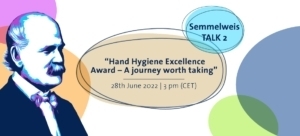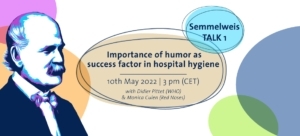Scotland has taken a significant leadership role in antibiotic stewardship education. One of the main initiatives is ScRAP, an ecucational toolkit, which helps to reduce unnecessary prescribing of antibiotics. We asked Prof. Dilip Nathwani, chairman of the Scottish Antimicrobial Prescribing Group (SAPG) and Honorary Professor of Infection in Dundee.
Mr. Nathwani, the ScRAP Programme, which was designed to support and assist Antimicrobial Management Teams (AMTs) was launched in 2013. What is special about this programme?
The programme, developed by NHS Education for Scotland in conjunction with the Scottish Antimicrobial Prescribing Group (SAPG), is presented as an educational toolkit to help prescribers to reduce unnecessary prescribing of antibiotics. It follows a quality improvement methodology, and is designed as an off the shelf educational resource for use by those engaging with primary care prescribers. It uses a blended learning approach, and the materials are reviewed in light of detailed evaluation. Further changes will be made to enhance further uptake.
Does there exist a similar programme also for the hospital field? And which target group is particular important?
Education tools on stewardship for nurses have also been produced and are currently being rolled out in Scottish Hospitals. This material is beneficial to nurses and midwives who play an important role in the administration, prescribing and education of antimicrobial therapy. Within healthcare settings, nurses are a constant factor, spending the most amount of time with patients. Early evaluations of this tools have been very encouraging. 90% of all nurses in a survey have found the educational resource useful and relevant to their clinical practice.
What can do an interested healthcare worker, whose employer does not offer appropriate education tools?
The University of Dundee, Scotland, in collaboration with the British Society for Antimicrobial Chemotherapy (BSCA) and FutureLearn have developed and launched a global massive open free on line course on antimicrobial stewardship in hospitals. About 22.000 learners from around the world have joined the course, 80% of those are active learners and up to 2/3 are healthcare related. It is truly an innovative and unique global course and by the end of this year we hope to have this available in translation in Chinese, Spanish and Russian.
Has Scotland a leading position in connection with Antibiotic Stewardship & education/training? Do other European countries work as intensively in this field and bundle similar toolkits?
E-learning is cost-effective but still underused, and I believe that the potential for e-learning is massive. Scotland has taken a significant leadership role in stewardship education but has worked closely with England and other European countries in relation to this area. For example, the British Society for Antimicrobial Chemotherapy (BSAC) has been leading on a range of educational activity under my presidency as well as the ESCMID Study Group for Antibiotic Policies (ESGAP) at European level. Some countries are developing a lot of educational/training toolkits (US, Canada, Australia, South Africa), and I agree it would be helpful to get some consistency around them but also allowing them to contextualise the resources in accordance with the setting and culture.




